
verl
verl: Volcano Engine Reinforcement Learning for LLMs
Stars: 13836
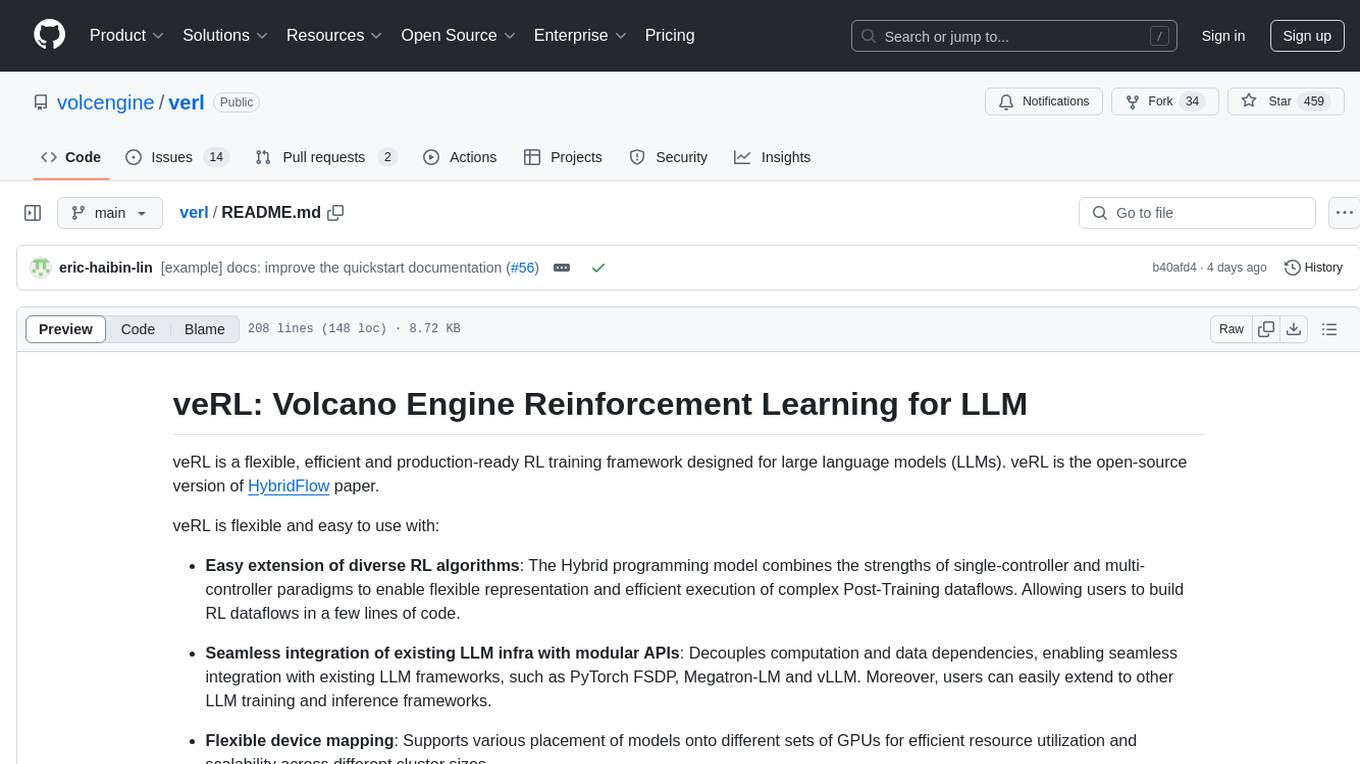
veRL is a flexible and efficient reinforcement learning training framework designed for large language models (LLMs). It allows easy extension of diverse RL algorithms, seamless integration with existing LLM infrastructures, and flexible device mapping. The framework achieves state-of-the-art throughput and efficient actor model resharding with 3D-HybridEngine. It supports popular HuggingFace models and is suitable for users working with PyTorch FSDP, Megatron-LM, and vLLM backends.
README:
verl is a flexible, efficient and production-ready RL training library for large language models (LLMs).
verl is the open-source version of HybridFlow: A Flexible and Efficient RLHF Framework paper.
verl is flexible and easy to use with:
-
Easy extension of diverse RL algorithms: The hybrid-controller programming model enables flexible representation and efficient execution of complex post-training dataflows. Build RL dataflows such as GRPO, PPO in a few lines of code.
-
Seamless integration of existing LLM infra with modular APIs: Decouples computation and data dependencies, enabling seamless integration with existing LLM frameworks, such as FSDP, Megatron-LM, vLLM, SGLang, etc
-
Flexible device mapping: Supports various placement of models onto different sets of GPUs for efficient resource utilization and scalability across different cluster sizes.
-
Ready integration with popular HuggingFace models
verl is fast with:
-
State-of-the-art throughput: SOTA LLM training and inference engine integrations and SOTA RL throughput.
-
Efficient actor model resharding with 3D-HybridEngine: Eliminates memory redundancy and significantly reduces communication overhead during transitions between training and generation phases.
- [2025/08] verl is presented in the PyTorch Expert Exchange Webinar. Slides available.
- [2025/07] The ReTool recipe is fully open sourced. Blog
- [2025/07] The first verl meetup will be held at ICML Vancouver on July 16th! Please join us if you are at ICML! (onsite only)
- [2025/06] verl with Megatron backend enables large MoE models such as DeepSeek-671B and Qwen3-235B.
- [2025/03] DAPO is the open-sourced SOTA RL algorithm that achieves 50 points on AIME 2024 based on the Qwen2.5-32B pre-trained model, surpassing the previous SOTA achieved by DeepSeek's GRPO (DeepSeek-R1-Zero-Qwen-32B). DAPO's training is fully powered by verl and the reproduction code is available in
recipe/daponow.
more...
- [2025/04] [Seed-Thinking-v1.5](https://github.com/ByteDance-Seed/Seed-Thinking-v1.5/blob/main/seed-thinking-v1.5.pdf) tech report is released! Trained with verl, Seed-Thinking-v1.5 achieves 86.7 on AIME 2024, 55.0 on Codeforces and 77.3 on GPQA, demonstrating excellent reasoning abilities in STEM and coding. Beyond reasoning tasks, the method demonstrates notable generalization across diverse domains.
- [2025/07] verl keynote at [AWS AI Hours Singapore](https://pages.awscloud.com/aws-ai-hours-sg.html#agenda) on 7/8, verl & verl-agent project updates at [Agent for SWE meetup](https://lu.ma/e498qhsi) by LF AI & Data Singapore on 7/11.
- [2025/06] verl team will provide latest project updates at [PyTorch Day China](https://www.lfasiallc.com/pytorch-day-china/) on June 7th. Meet our dev team in Beijing!
- [2025/04] [VAPO](https://arxiv.org/pdf/2504.05118) (value-based augmented PPO) paper covers our latest RL method for reasoning models. Trained from Qwen-32B-base model, VAPO achieves 60.4 on AIME 2024, outperforming DAPO-32B.
- [2025/05] [PF-PPO](https://arxiv.org/abs/2409.06957), accepted to ICML 2025, is now supported in verl! PF-PPO enhances policy learning efficiency and robustness by filtering potentially noisy reward signals and reusing high-quality experiences via a replay buffer.
- [2025/04] We will give a tutorial about latest post-training techniques and programming guide for verl at [ICLR 2025 Expo](https://iclr.cc/virtual/2025/calendar?filter_events=Expo+Talk+Panel&filter_rooms=), [SCI-FM workshop](https://open-foundation-model.github.io/) and [LMSys afterparty](https://lu.ma/d23nyynm). Talk materials available [here](https://github.com/eric-haibin-lin/verl-community/tree/main/iclr25).
- [2025/03] verl v0.3.0.post1 is released! See [release note](https://github.com/volcengine/verl/releases/) for details. It achieves [~1.4x speedup](https://tongyx361.github.io/blogs/posts/verl-intro/#/verl-flexible-and-efficient-rl-for-llms) compared to prev versions.
- [2025/05] verl will be presented at [A2M Shanghai](https://a2m.msup.com.cn/home/?aid=4488&city=shanghai) on 5/16 - 5/17.
- [2025/05] verl will be presented at [GOSIM x PyTorch Day 2025](https://paris2025.gosim.org/). See you in Paris!
- [2025/03] We introduced the programming model of verl at the [vLLM Beijing Meetup](https://mp.weixin.qq.com/s/n77GibL2corAtQHtVEAzfg) and [verl intro and updates](https://github.com/eric-haibin-lin/verl-community/blob/main/slides/verl-lmsys-meetup.pdf) at the [SGLang-LMSYS Org Meetup](https://lu.ma/ntjrr7ig) in Sunnyvale mid-March.
- [2025/03] We will present verl(HybridFlow) at EuroSys 2025. See you in Rotterdam!
- [2025/02] verl v0.2.0.post2 is released!
- [2025/02] We presented verl in the Bytedance/NVIDIA/Anyscale Ray Meetup. See you in San Jose!
- [2025/01] [Doubao-1.5-pro](https://team.doubao.com/zh/special/doubao_1_5_pro) is released with SOTA-level performance on LLM & VLM. The RL scaling preview model is trained using verl, reaching OpenAI O1-level performance on math benchmarks (70.0 pass@1 on AIME).
- [2024/12] verl is presented at Ray Forward 2024. Slides available here
- [2024/12] The team presented Post-training LLMs: From Algorithms to Infrastructure at NeurIPS 2024. Slides and video available.
- [2024/10] verl is presented at Ray Summit. Youtube video available.
- [2024/08] HybridFlow (verl) is accepted to EuroSys 2025.
- FSDP, FSDP2 and Megatron-LM for training.
- vLLM, SGLang and HF Transformers for rollout generation.
- Compatible with Hugging Face Transformers and Modelscope Hub: Qwen-3, Qwen-2.5, Llama3.1, Gemma2, DeepSeek-LLM, etc
- Supervised fine-tuning.
- Reinforcement learning with PPO, GRPO, GSPO, ReMax, REINFORCE++, RLOO, PRIME, DAPO, DrGRPO, KL_Cov & Clip_Cov etc.
- Support model-based reward and function-based reward (verifiable reward) for math, coding, etc
- Support vision-language models (VLMs) and multi-modal RL with Qwen2.5-vl, Kimi-VL
- Multi-turn with tool calling
- LLM alignment recipes such as Self-play preference optimization (SPPO)
- Flash attention 2, sequence packing, sequence parallelism support via DeepSpeed Ulysses, LoRA, Liger-kernel.
- Scales up to 671B models and hundreds of GPUs with expert parallelism
- Multi-gpu LoRA RL support to save memory.
- Experiment tracking with wandb, swanlab, mlflow and tensorboard.
- Q3 Roadmap https://github.com/volcengine/verl/issues/2388
- DeepSeek 671b optimizations with Megatron https://github.com/volcengine/verl/issues/1033
- Multi-turn rollout and tools using optimizations https://github.com/volcengine/verl/issues/1882
- Agent integration
- Async and off-policy architecture https://github.com/volcengine/verl/pull/2231
- List of breaking changes since v0.4 https://github.com/volcengine/verl/discussions/2270
Quickstart:
- Installation
- Quickstart
- Programming Guide & Tech Talk (in Chinese)
- PPO in verl
- GRPO in verl
Running a PPO example step-by-step:
- Prepare Data for Post-Training
- Implement Reward Function for Dataset
- PPO Example Architecture
- Config Explanation
Reproducible algorithm baselines:
For code explanation and advance usage (extension):
-
PPO Trainer and Workers
-
Advanced Usage and Extension
Blogs from the community
- When Reasoning Models Break Tokenization: The Hidden Complexity of Multiturn Training
- verl deployment on AWS SageMaker
- verl x SGLang Multi-turn Code Walkthrough
- Optimizing SGLang Memory Usage in verl
- SGLang, verl, OpenBMB and Tsinghua University: Pioneering End-to-End Multi-Turn RLHF
- Reinforcement Learning from Human Feedback on AMD GPUs with verl and ROCm Integration
- veMLP x verl :玩转强化学习训练
- 使用 verl 进行 GRPO 分布式强化学习训练最佳实践
- HybridFlow verl 原文浅析
- 最高提升 20 倍吞吐量!豆包大模型团队发布全新 RLHF 框架,现已开源!
The performance is essential for on-policy RL algorithm. We have written a detailed performance tuning guide to help you optimize performance.
verl now supports vLLM>=0.8.2 when using FSDP as the training backend. Please refer to this document for the installation guide and more information. Please avoid vllm 0.7.x, which contains bugs that may lead to OOMs and unexpected errors.
SGLang is fully supported with verl, and SGLang RL Group is working extensively on building unique features, including multi-turn agentic RL, VLM RLHF, server-based RL, and partial rollout. Please refer to this document for the installation guide and more information.
verl is fully embracing FSDP2! FSDP2 is recommended by torch distributed team, providing better throughput and memory usage, and is composible with other features (e.g. torch.compile). To enable FSDP2, simply use verl main and set the following options:
actor_rollout_ref.ref.strategy=fsdp2
actor_rollout_ref.actor.strategy=fsdp2
critic.strategy=fsdp2
reward_model.strategy=fsdp2
Furthermore, FSDP2 cpu offloading is compatible with gradient accumulation. You can turn it on to save memory with actor_rollout_ref.actor.fsdp_config.offload_policy=True. For more details, see https://github.com/volcengine/verl/pull/1026
verl now supports FSDP as the training engine (Megatron support coming soon) and both integrates with vLLM and SGLang as inference engines. Please refer to this document for the installation guide and more information, and this document for the vLLM performance tuning for ROCm.
If you find the project helpful, please cite:
- HybridFlow: A Flexible and Efficient RLHF Framework
- A Framework for Training Large Language Models for Code Generation via Proximal Policy Optimization
@article{sheng2024hybridflow,
title = {HybridFlow: A Flexible and Efficient RLHF Framework},
author = {Guangming Sheng and Chi Zhang and Zilingfeng Ye and Xibin Wu and Wang Zhang and Ru Zhang and Yanghua Peng and Haibin Lin and Chuan Wu},
year = {2024},
journal = {arXiv preprint arXiv: 2409.19256}
}verl is inspired by the design of Nemo-Aligner, Deepspeed-chat and OpenRLHF. The project is adopted and contributed by Bytedance, Anyscale, LMSys.org, Alibaba Qwen team, Shanghai AI Lab, Tsinghua University, UC Berkeley, UCLA, UIUC, University of Hong Kong, ke.com, All Hands AI, ModelBest, JD AI Lab, Microsoft Research, StepFun, Amazon, LinkedIn, Meituan, Camel-AI, OpenManus, Xiaomi, NVIDIA research, Baichuan, RedNote, SwissAI, Moonshot AI (Kimi), Baidu, Snowflake, Skywork.ai, JetBrains, IceSword Lab, and many more.
-
TinyZero: a reproduction of DeepSeek R1 Zero recipe for reasoning tasks
-
SkyThought: RL training for Sky-T1-7B by NovaSky AI team.
-
simpleRL-reason: SimpleRL-Zoo: Investigating and Taming Zero Reinforcement Learning for Open Base Models in the Wild
-
Easy-R1: Multi-modal RL training framework
-
OpenManus-RL: LLM Agents RL tunning framework for multiple agent environments.
-
rllm: async RL training with verl-pipeline
-
RAGEN: a general-purpose reasoning agent training framework
-
Search-R1: RL with reasoning and searching (tool-call) interleaved LLMs
-
ReSearch: Learning to Reason with Search for LLMs via Reinforcement Learning
-
Skywork-OR1: Skywork open reaonser series
-
ToRL: Scaling tool-integrated RL
-
Absolute Zero Reasoner: A no human curated data self-play framework for reasoning
-
verl-agent: A scalable training framework for long-horizon LLM/VLM agents, along with a new algorithm GiGPO
-
RL-Factory: An easy and efficient RL post-training framework for Agentic Learning
- ReTool: ReTool: reinforcement learning for strategic tool use in LLMs. Code release is in progress...
-
verl-tool: An unified and easy-to-extend tool-agent training framework based on verl
-
PRIME: Process reinforcement through implicit rewards
-
MemAgent: MemAgent: Reshaping Long-Context LLM with Multi-Conv RL based Memory Agent
-
POLARIS: A Post-training recipe for scaling RL on Advanced Reasoning models
-
GUI-R1: GUI-R1: A Generalist R1-style Vision-Language Action Model For GUI Agents
-
DeepRetrieval: RL Training of Search Agent with Search/Retrieval Outcome
-
Code-R1: Reproducing R1 for Code with Reliable Rewards
-
DeepResearcher: Scaling deep research via reinforcement learning in real-world environments
-
VAGEN: Training VLM agents with multi-turn reinforcement learning
-
RM-R1: RL training of reasoning reward models
-
LUFFY: Learning to Reason under Off-Policy Guidance
-
DeepMath: DeepMath-103K data and series models for math reasoning
-
PACS: Implicit Actor Critic Coupling via a Supervised Learning Framework for RLVR
-
Entropy Mechanism of RL: The Entropy Mechanism of Reinforcement Learning for Large Language Model Reasoning
-
LLaSA-TTS-GRPO: TTS fine-tuning with GRPO optimization based on LLASA models
- PF-PPO: Policy Filtration for PPO based on the reliability of reward signals for more efficient and robust RLHF.
-
RACRO: Build multi-modal reasoning models via decoupling it into query-conditioned captioning and text-only reasoning
-
Agent Lightning: A flexible and extensible framework that enables seamless agent optimization for any existing agent framework.
-
VTool-R1: VLMs Learn to Think with Images via Reinforcement Learning on Multimodal Tool Use.
- Kimina-Prover-RL: Training pipeline for formal theorem proving, based on a paradigm inspired by DeepSeek-R1.
- RL-PLUS: Countering Capability Boundary Collapse of LLMs in Reinforcement Learning with Hybrid-policy Optimization.
-
rStar2-Agent: Using reinforcement learning with multi-step tool-calling for math tasks, rStar2-Agent-14B reaches frontier-level math reasoning in just 510 RL training steps
-
Vision-SR1: Self-Rewarding Vision-Language Model via Reasoning Decomposition
-
SimpleVLA-RL: SimpleVLA-RL: A Simple yet Effective Vision-Language Action Model for Reinforcement Learning
-
Table-R1: Table-R1: Inference-Time Scaling for Table Reasoning
and many more awesome work listed in recipe.
About ByteDance Seed Team
Founded in 2023, ByteDance Seed Team is dedicated to crafting the industry's most advanced AI foundation models. The team aspires to become a world-class research team and make significant contributions to the advancement of science and society. You can get to know Bytedance Seed better through the following channels👇
---We are HIRING! Send us an email if you are interested in internship/FTE opportunities in RL for agents.
For Tasks:
Click tags to check more tools for each tasksFor Jobs:
Alternative AI tools for verl
Similar Open Source Tools

verl
veRL is a flexible and efficient reinforcement learning training framework designed for large language models (LLMs). It allows easy extension of diverse RL algorithms, seamless integration with existing LLM infrastructures, and flexible device mapping. The framework achieves state-of-the-art throughput and efficient actor model resharding with 3D-HybridEngine. It supports popular HuggingFace models and is suitable for users working with PyTorch FSDP, Megatron-LM, and vLLM backends.
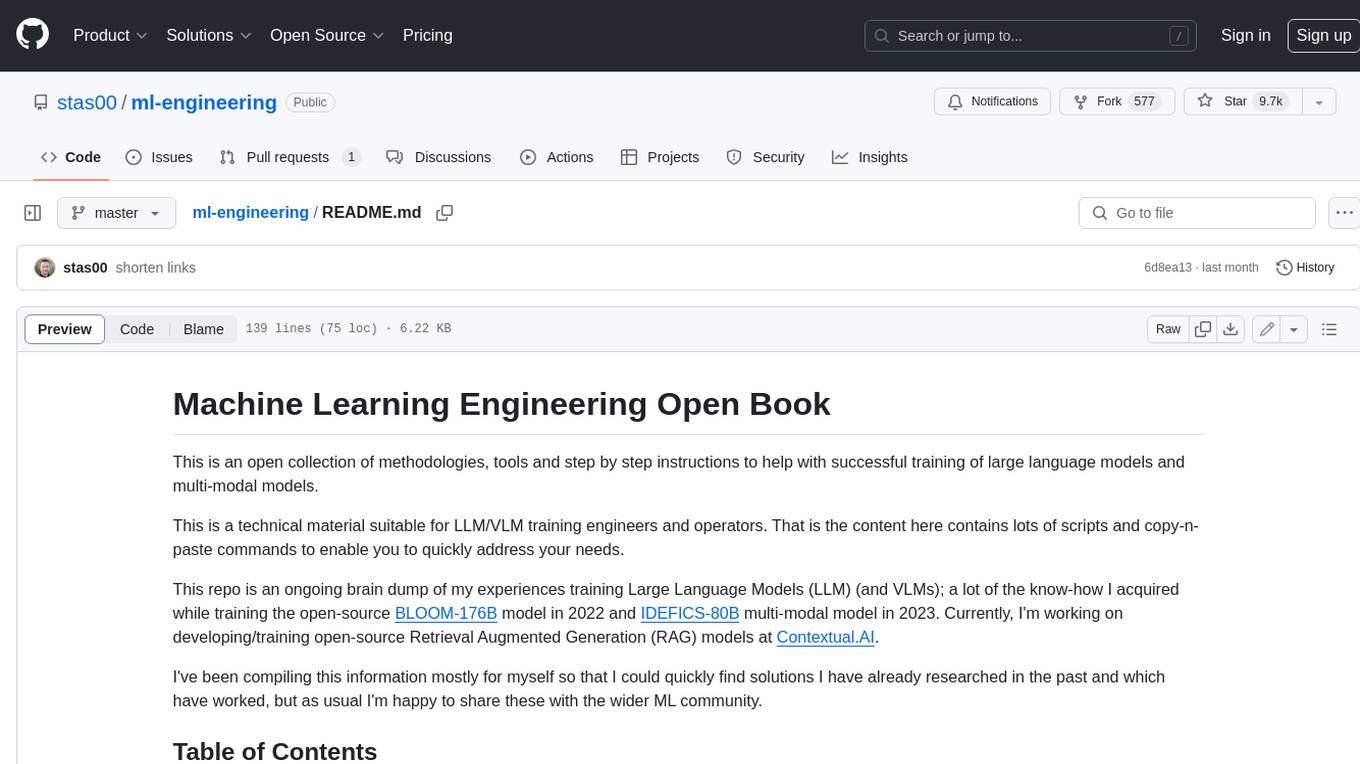
ml-engineering
This repository provides a comprehensive collection of methodologies, tools, and step-by-step instructions for successful training of large language models (LLMs) and multi-modal models. It is a technical resource suitable for LLM/VLM training engineers and operators, containing numerous scripts and copy-n-paste commands to facilitate quick problem-solving. The repository is an ongoing compilation of the author's experiences training BLOOM-176B and IDEFICS-80B models, and currently focuses on the development and training of Retrieval Augmented Generation (RAG) models at Contextual.AI. The content is organized into six parts: Insights, Hardware, Orchestration, Training, Development, and Miscellaneous. It includes key comparison tables for high-end accelerators and networks, as well as shortcuts to frequently needed tools and guides. The repository is open to contributions and discussions, and is licensed under Attribution-ShareAlike 4.0 International.
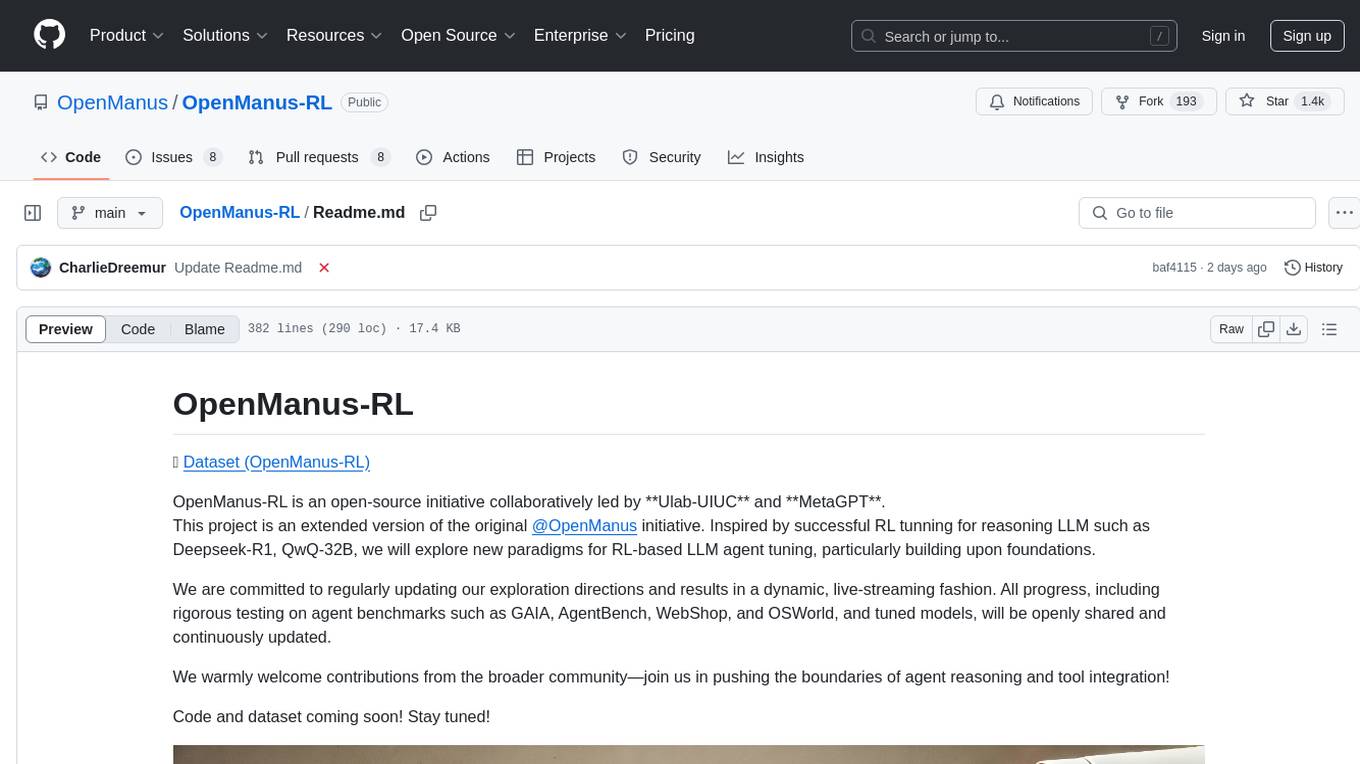
OpenManus-RL
OpenManus-RL is an open-source initiative focused on enhancing reasoning and decision-making capabilities of large language models (LLMs) through advanced reinforcement learning (RL)-based agent tuning. The project explores novel algorithmic structures, diverse reasoning paradigms, sophisticated reward strategies, and extensive benchmark environments. It aims to push the boundaries of agent reasoning and tool integration by integrating insights from leading RL tuning frameworks and continuously updating progress in a dynamic, live-streaming fashion.
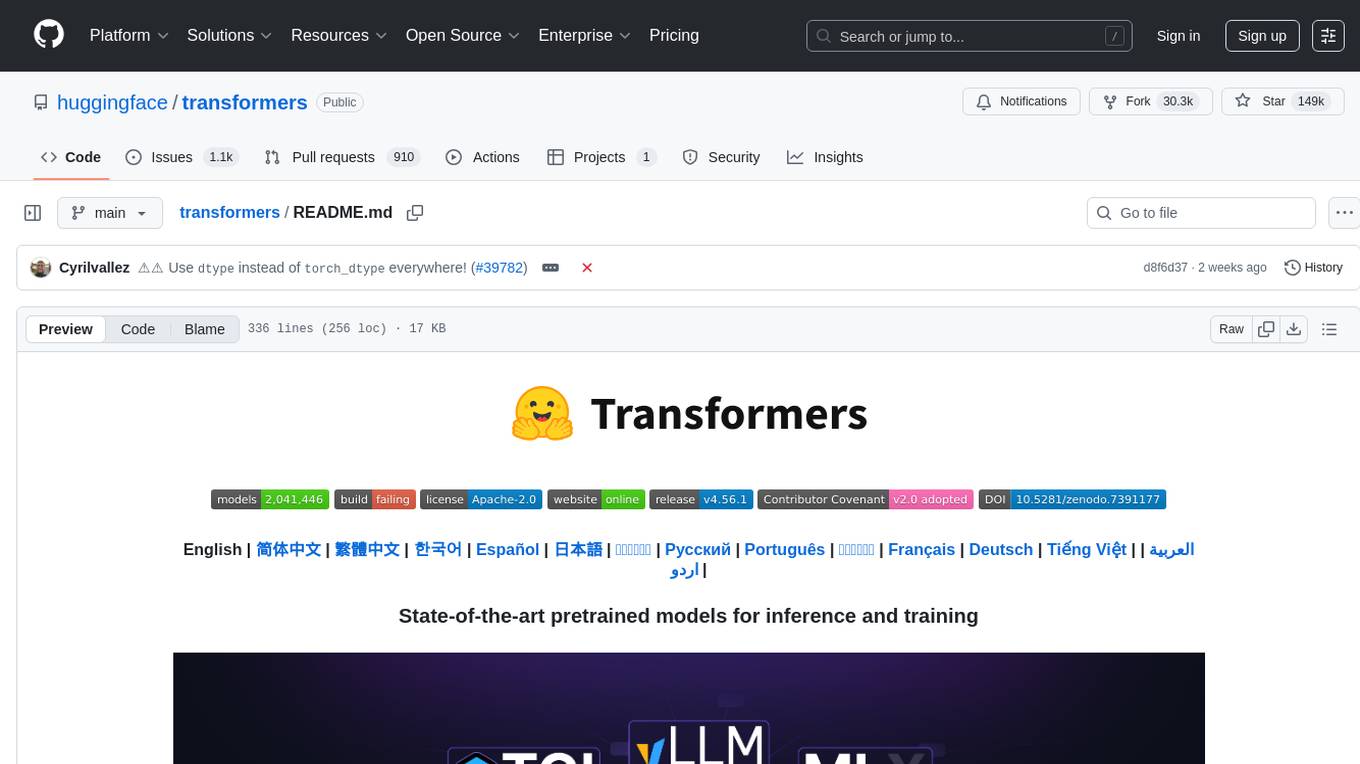
transformers
Transformers is a state-of-the-art pretrained models library that acts as the model-definition framework for machine learning models in text, computer vision, audio, video, and multimodal tasks. It centralizes model definition for compatibility across various training frameworks, inference engines, and modeling libraries. The library simplifies the usage of new models by providing simple, customizable, and efficient model definitions. With over 1M+ Transformers model checkpoints available, users can easily find and utilize models for their tasks.
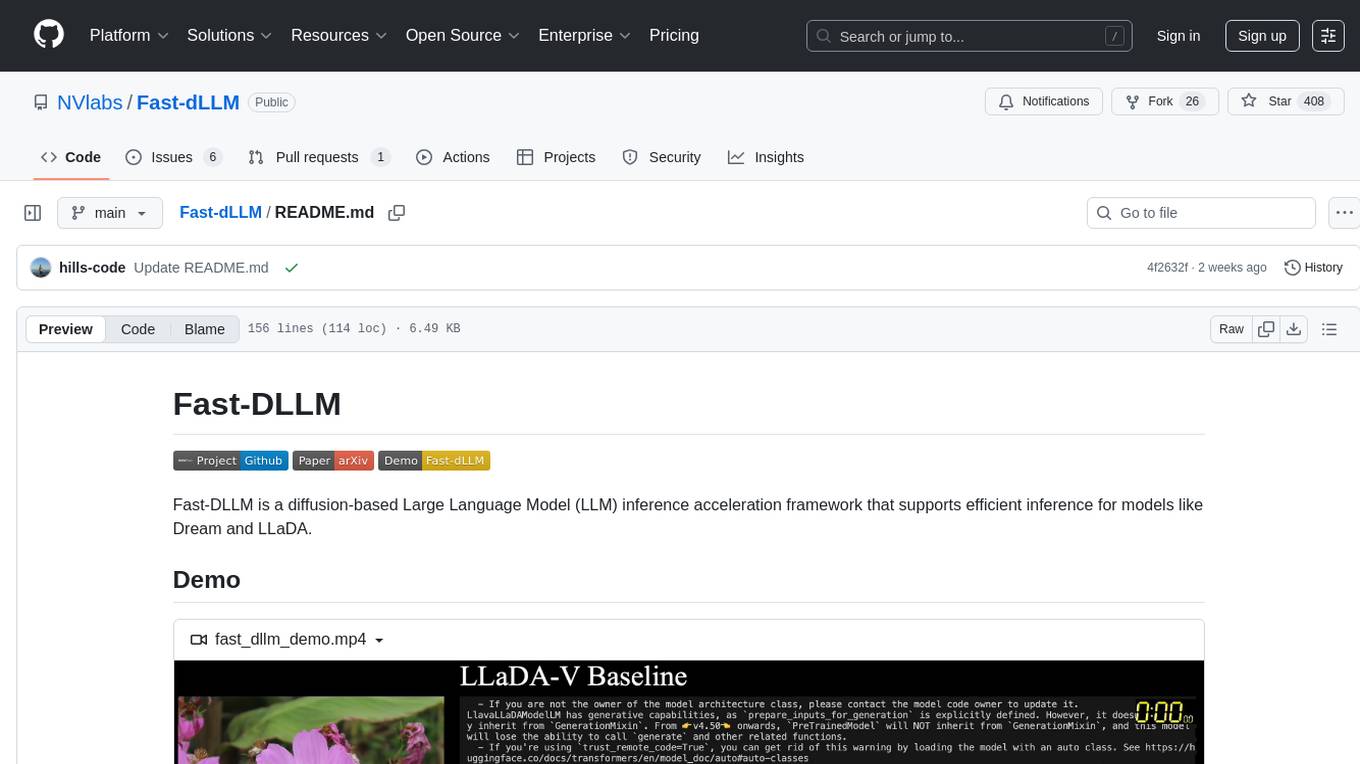
Fast-dLLM
Fast-DLLM is a diffusion-based Large Language Model (LLM) inference acceleration framework that supports efficient inference for models like Dream and LLaDA. It offers fast inference support, multiple optimization strategies, code generation, evaluation capabilities, and an interactive chat interface. Key features include Key-Value Cache for Block-Wise Decoding, Confidence-Aware Parallel Decoding, and overall performance improvements. The project structure includes directories for Dream and LLaDA model-related code, with installation and usage instructions provided for using the LLaDA and Dream models.
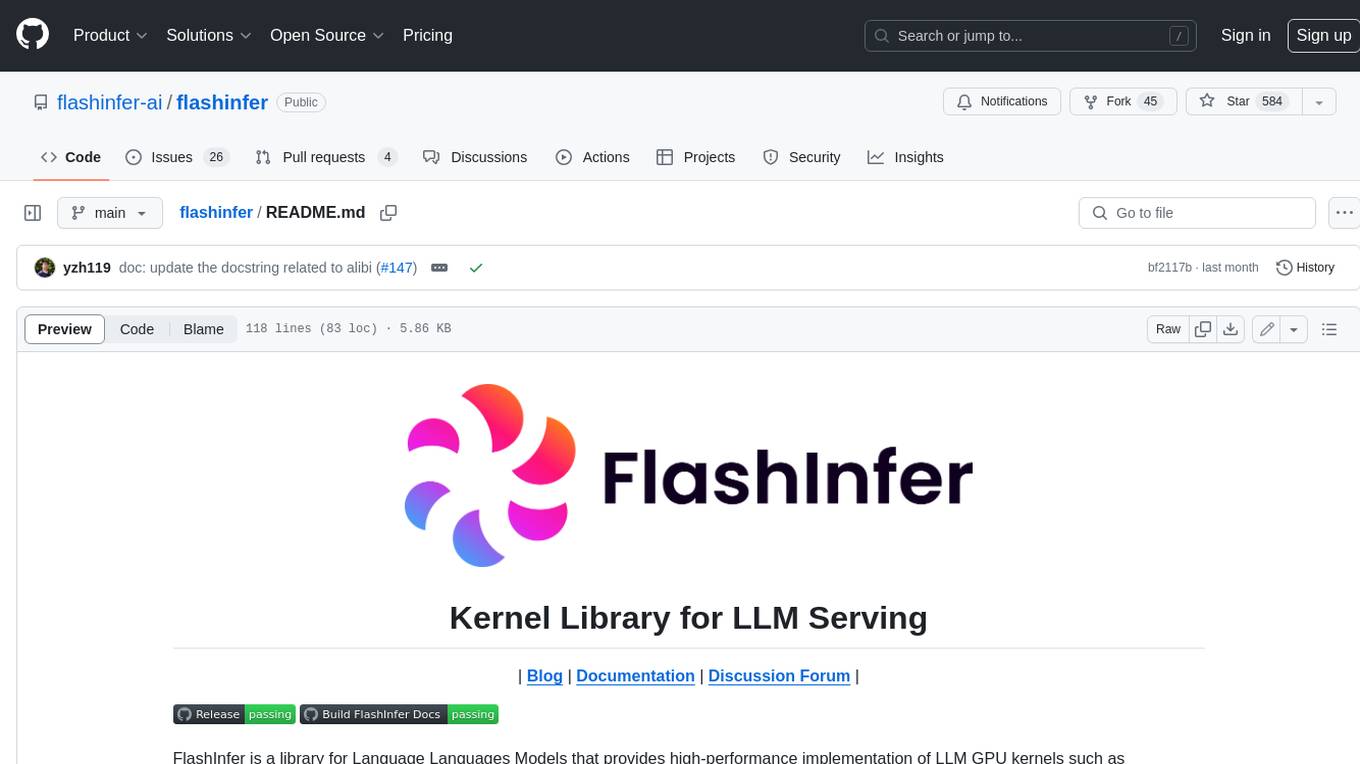
flashinfer
FlashInfer is a library for Language Languages Models that provides high-performance implementation of LLM GPU kernels such as FlashAttention, PageAttention and LoRA. FlashInfer focus on LLM serving and inference, and delivers state-the-art performance across diverse scenarios.
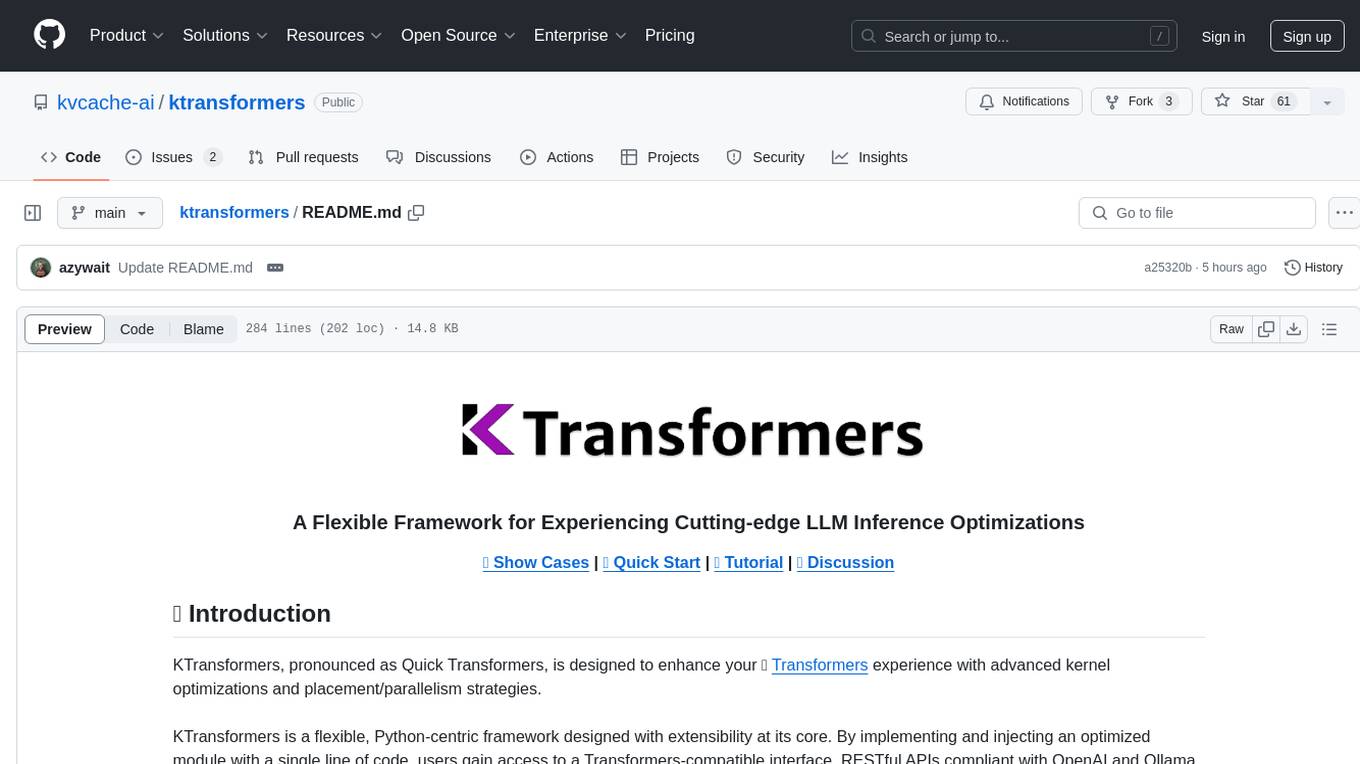
ktransformers
KTransformers is a flexible Python-centric framework designed to enhance the user's experience with advanced kernel optimizations and placement/parallelism strategies for Transformers. It provides a Transformers-compatible interface, RESTful APIs compliant with OpenAI and Ollama, and a simplified ChatGPT-like web UI. The framework aims to serve as a platform for experimenting with innovative LLM inference optimizations, focusing on local deployments constrained by limited resources and supporting heterogeneous computing opportunities like GPU/CPU offloading of quantized models.
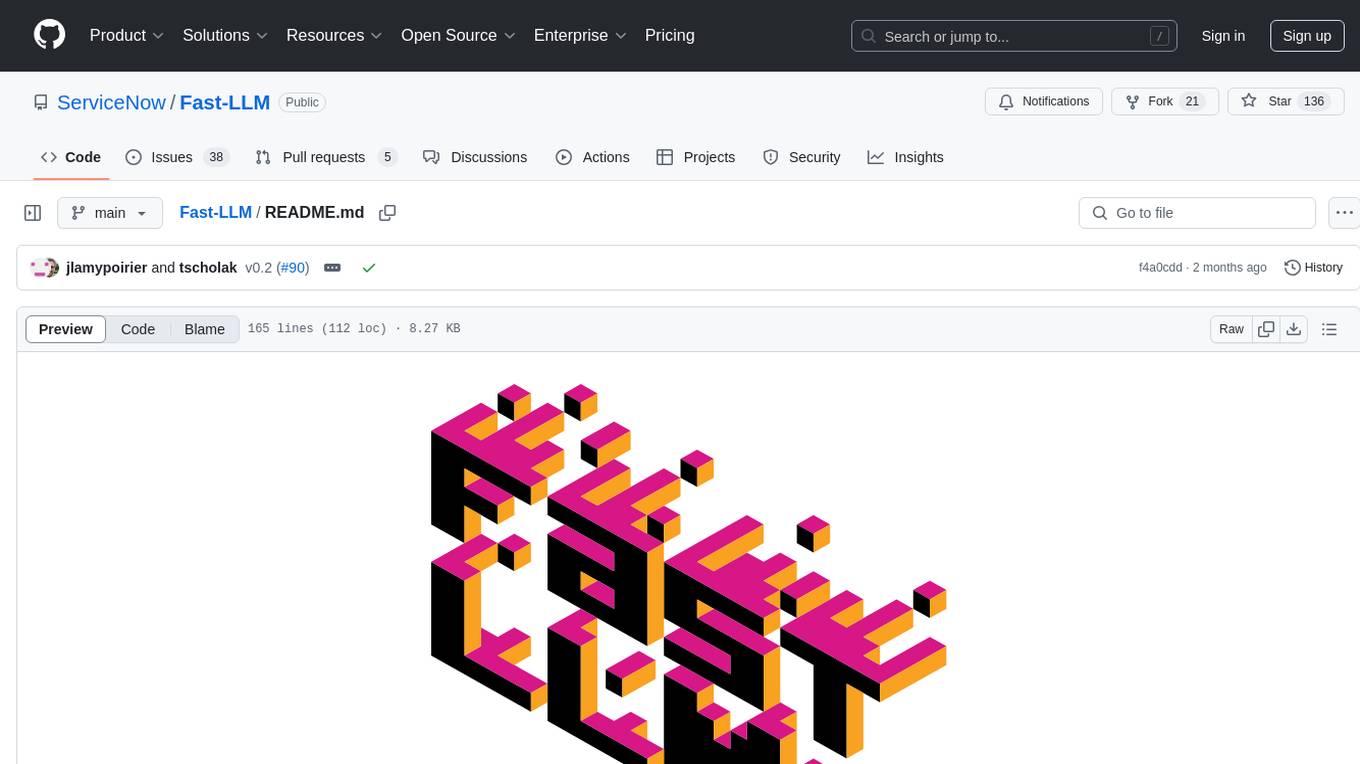
Fast-LLM
Fast-LLM is an open-source library designed for training large language models with exceptional speed, scalability, and flexibility. Built on PyTorch and Triton, it offers optimized kernel efficiency, reduced overheads, and memory usage, making it suitable for training models of all sizes. The library supports distributed training across multiple GPUs and nodes, offers flexibility in model architectures, and is easy to use with pre-built Docker images and simple configuration. Fast-LLM is licensed under Apache 2.0, developed transparently on GitHub, and encourages contributions and collaboration from the community.
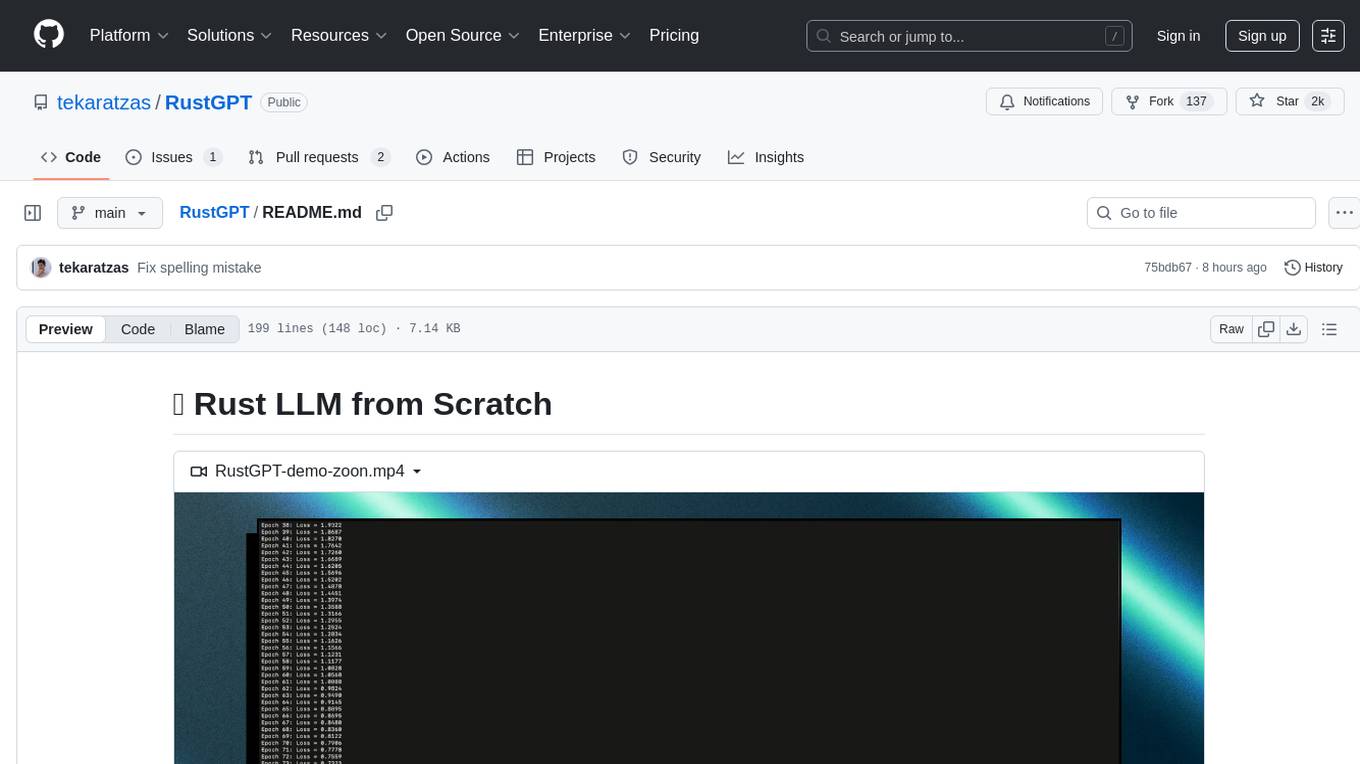
RustGPT
A complete Large Language Model implementation in pure Rust with no external ML frameworks. Demonstrates building a transformer-based language model from scratch, including pre-training, instruction tuning, interactive chat mode, full backpropagation, and modular architecture. Model learns basic world knowledge and conversational patterns. Features custom tokenization, greedy decoding, gradient clipping, modular layer system, and comprehensive test coverage. Ideal for understanding modern LLMs and key ML concepts. Dependencies include ndarray for matrix operations and rand for random number generation. Contributions welcome for model persistence, performance optimizations, better sampling, evaluation metrics, advanced architectures, training improvements, data handling, and model analysis. Follows standard Rust conventions and encourages contributions at beginner, intermediate, and advanced levels.
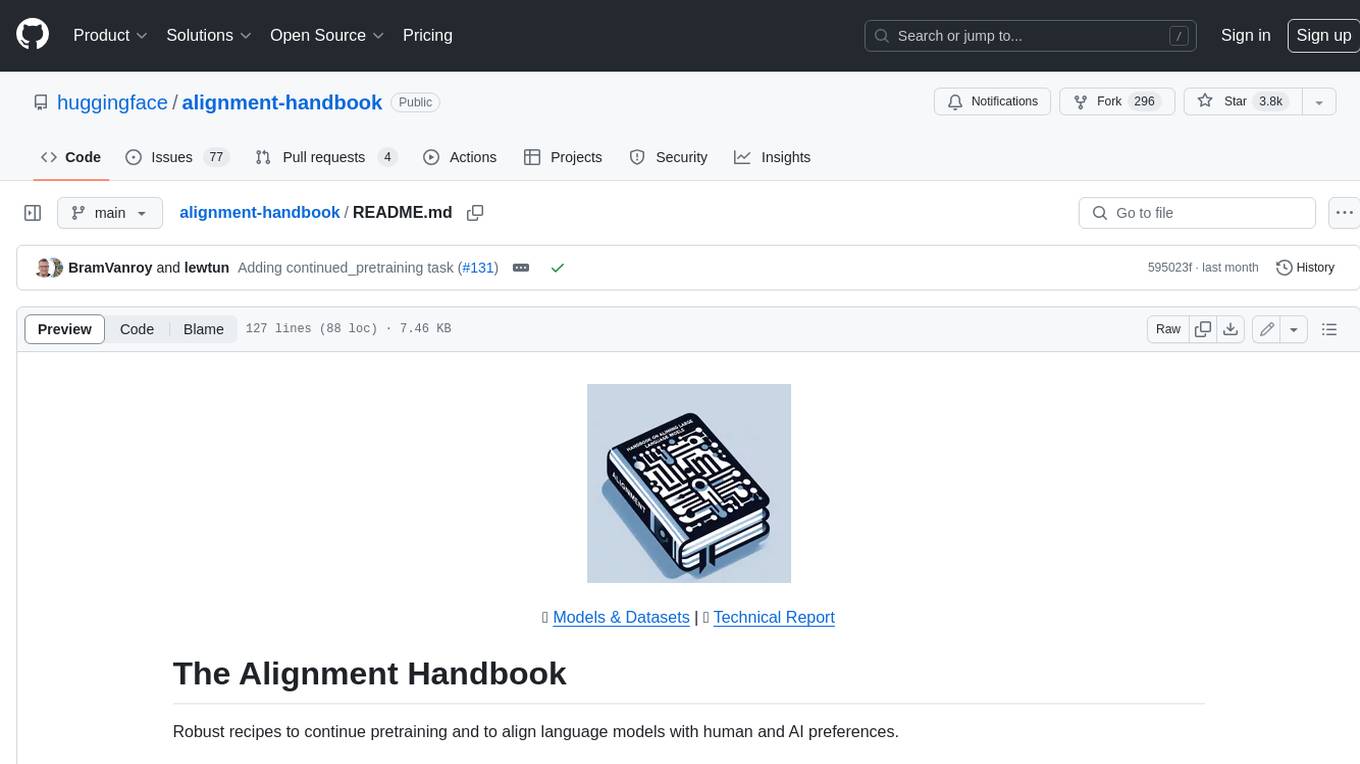
alignment-handbook
The Alignment Handbook provides robust training recipes for continuing pretraining and aligning language models with human and AI preferences. It includes techniques such as continued pretraining, supervised fine-tuning, reward modeling, rejection sampling, and direct preference optimization (DPO). The handbook aims to fill the gap in public resources on training these models, collecting data, and measuring metrics for optimal downstream performance.
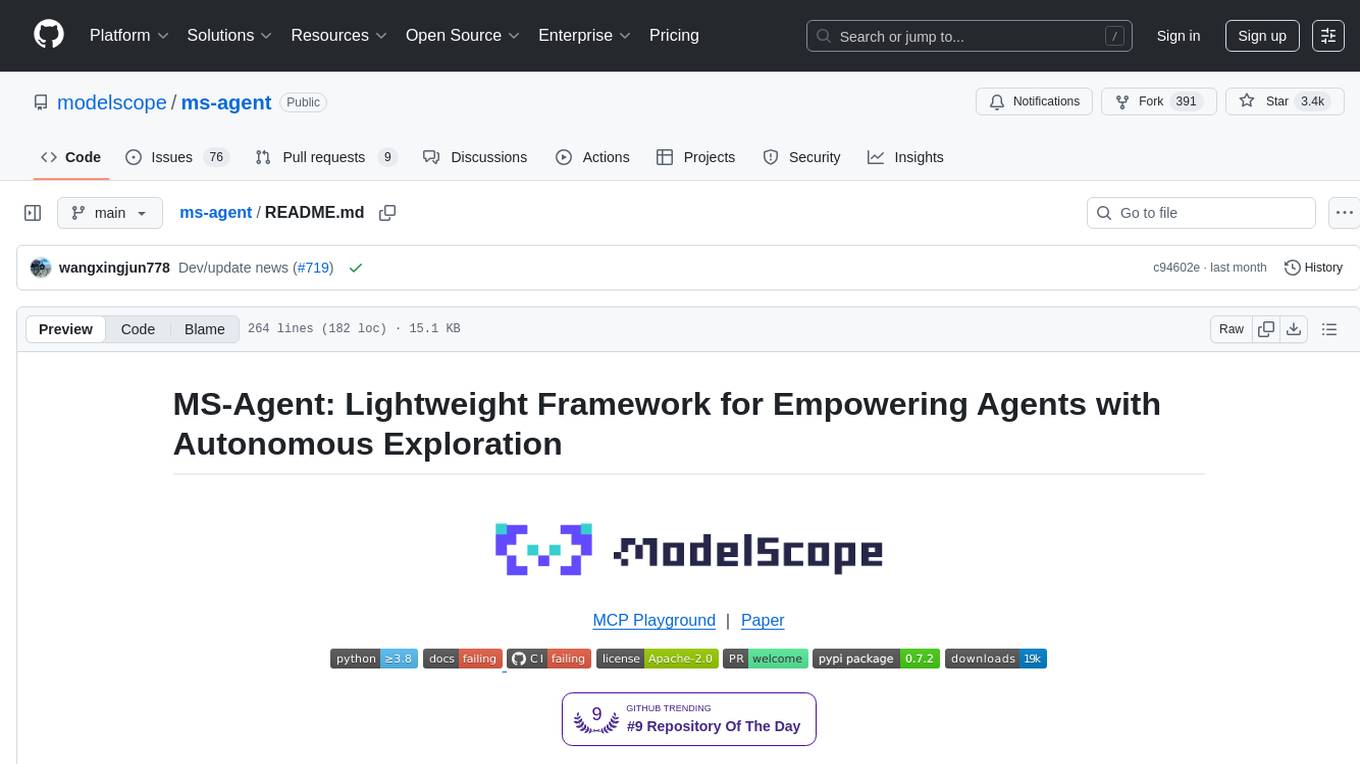
ms-agent
MS-Agent is a lightweight framework designed to empower agents with autonomous exploration capabilities. It provides a flexible and extensible architecture for creating agents capable of tasks like code generation, data analysis, and tool calling with MCP support. The framework supports multi-agent interactions, deep research, code generation, and is lightweight and extensible for various applications.
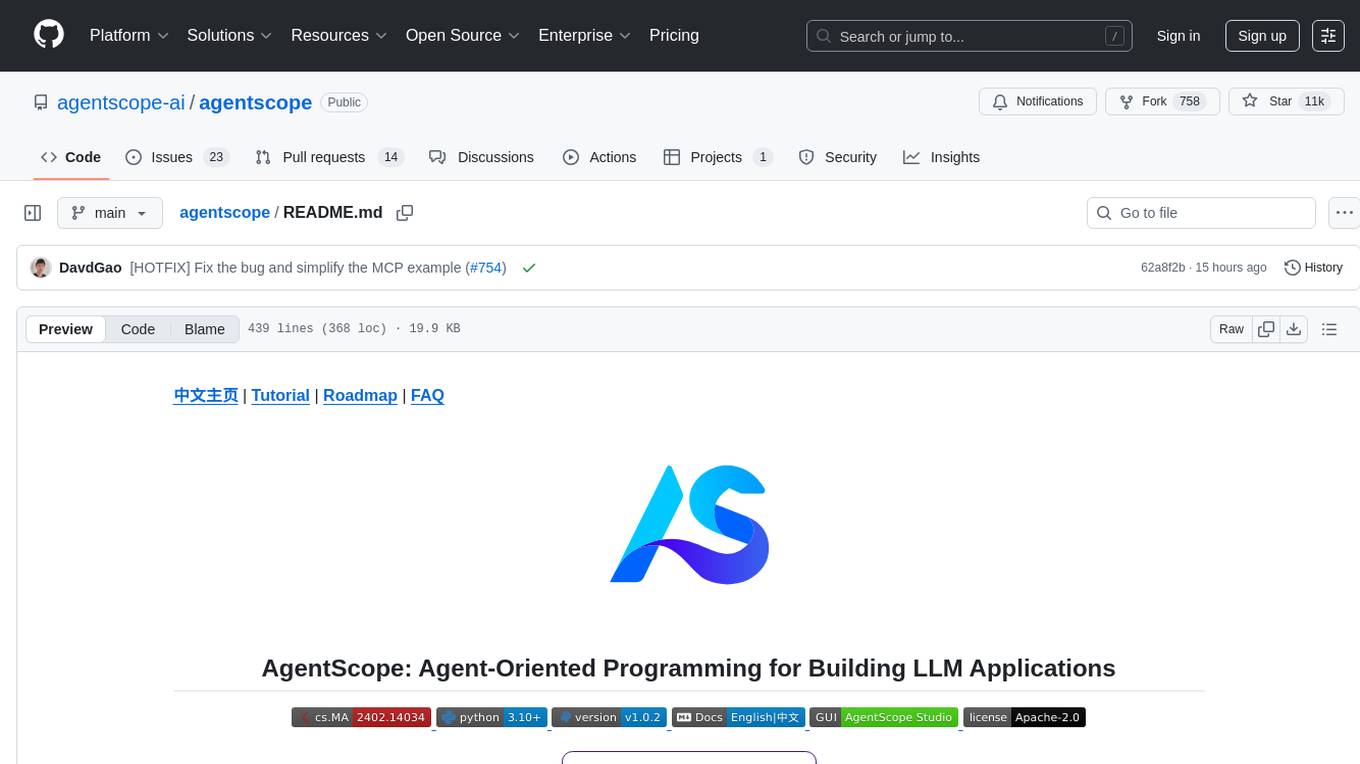
agentscope
AgentScope is an agent-oriented programming tool for building LLM (Large Language Model) applications. It provides transparent development, realtime steering, agentic tools management, model agnostic programming, LEGO-style agent building, multi-agent support, and high customizability. The tool supports async invocation, reasoning models, streaming returns, async/sync tool functions, user interruption, group-wise tools management, streamable transport, stateful/stateless mode MCP client, distributed and parallel evaluation, multi-agent conversation management, and fine-grained MCP control. AgentScope Studio enables tracing and visualization of agent applications. The tool is highly customizable and encourages customization at various levels.
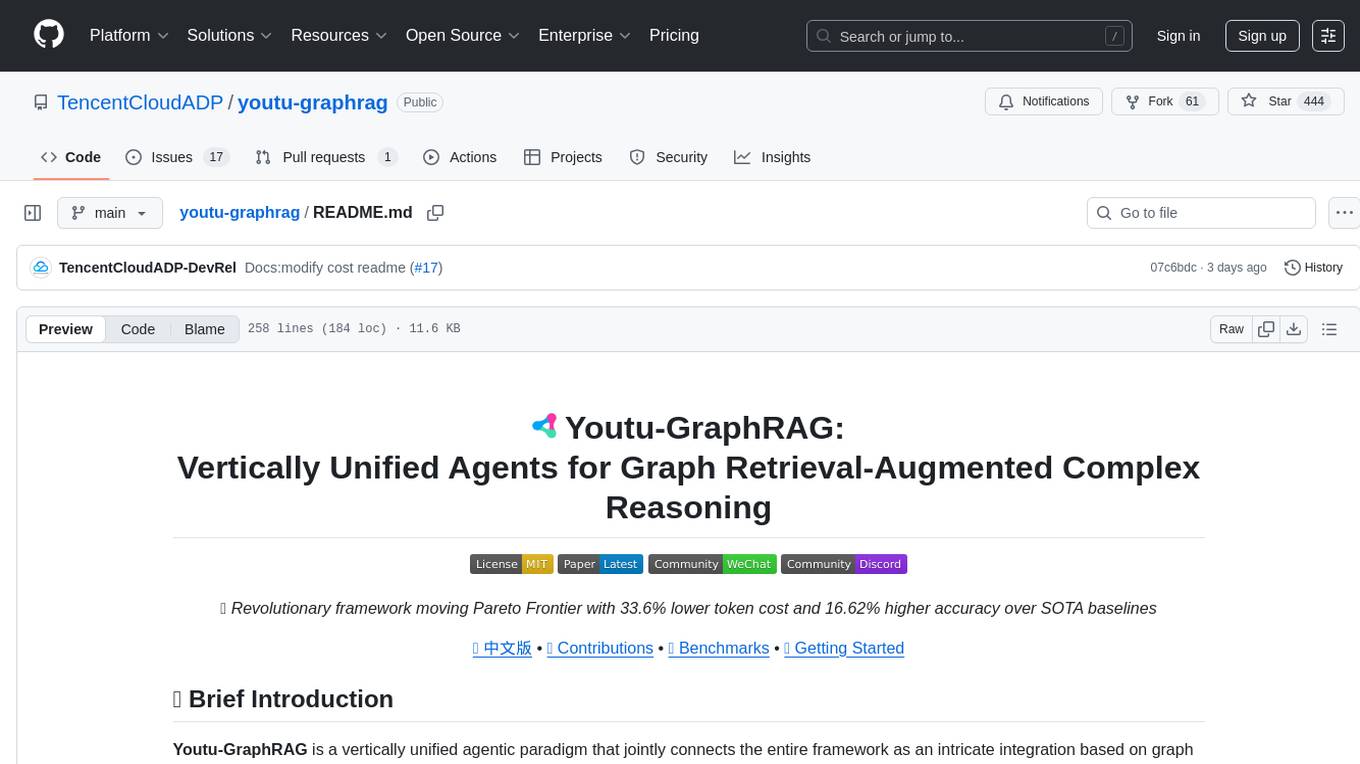
youtu-graphrag
Youtu-GraphRAG is a vertically unified agentic paradigm that connects the entire framework based on graph schema, allowing seamless domain transfer with minimal intervention. It introduces key innovations like schema-guided hierarchical knowledge tree construction, dually-perceived community detection, agentic retrieval, advanced construction and reasoning capabilities, fair anonymous dataset 'AnonyRAG', and unified configuration management. The framework demonstrates robustness with lower token cost and higher accuracy compared to state-of-the-art methods, enabling enterprise-scale deployment with minimal manual intervention for new domains.
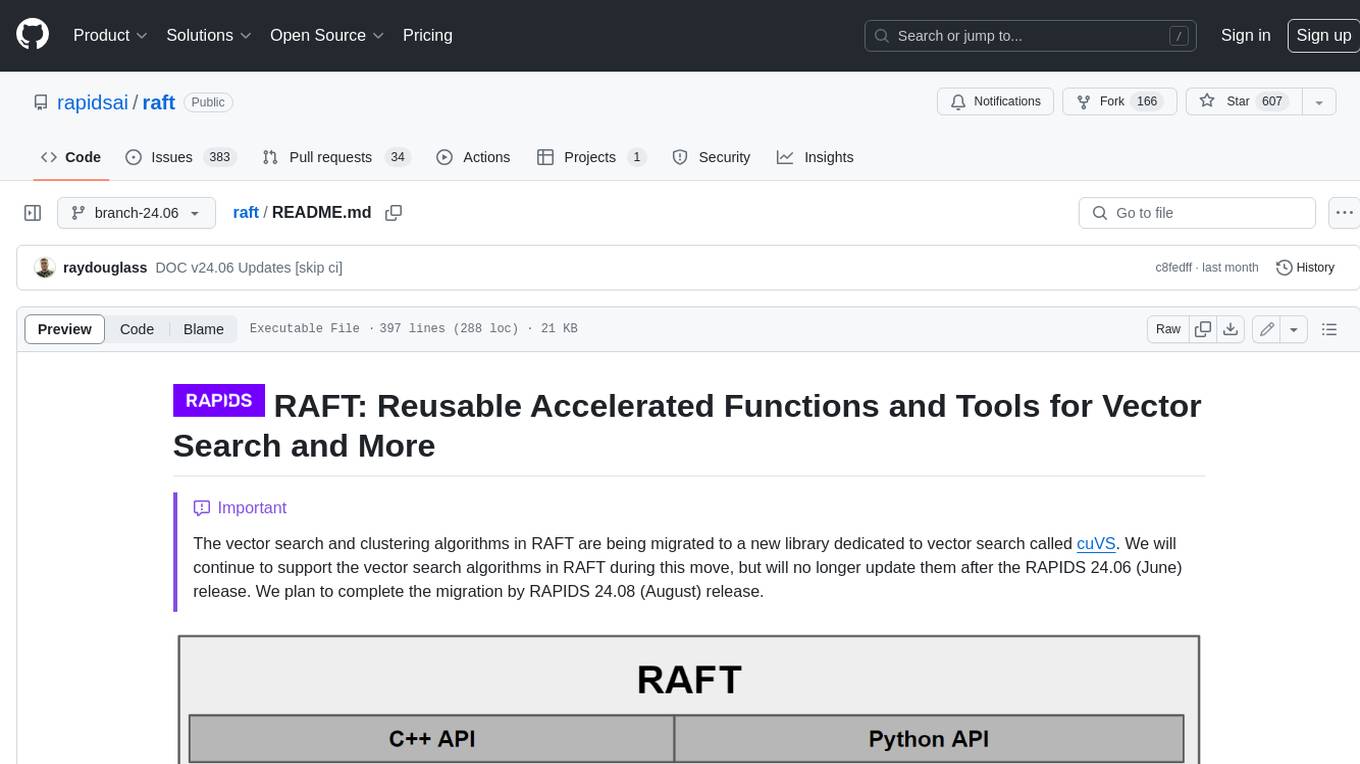
raft
RAFT (Reusable Accelerated Functions and Tools) is a C++ header-only template library with an optional shared library that contains fundamental widely-used algorithms and primitives for machine learning and information retrieval. The algorithms are CUDA-accelerated and form building blocks for more easily writing high performance applications.
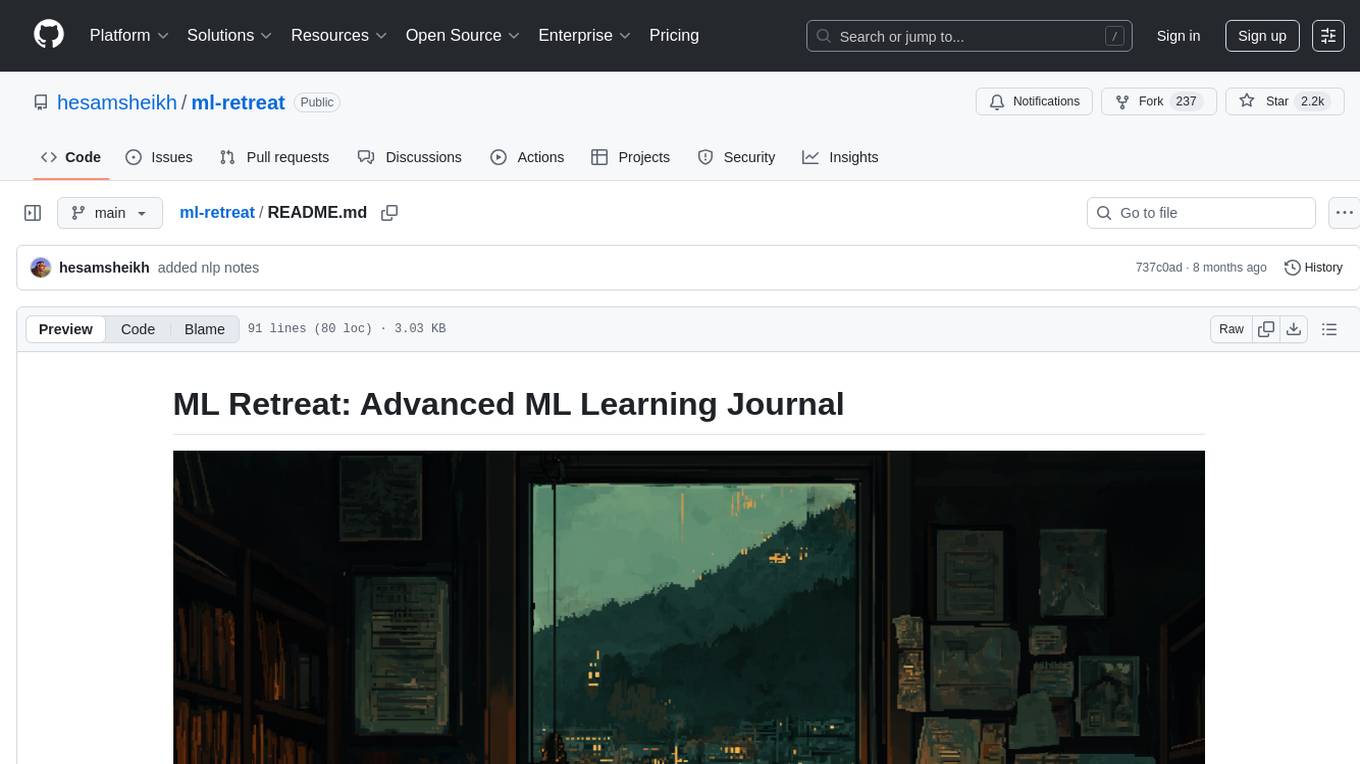
ml-retreat
ML-Retreat is a comprehensive machine learning library designed to simplify and streamline the process of building and deploying machine learning models. It provides a wide range of tools and utilities for data preprocessing, model training, evaluation, and deployment. With ML-Retreat, users can easily experiment with different algorithms, hyperparameters, and feature engineering techniques to optimize their models. The library is built with a focus on scalability, performance, and ease of use, making it suitable for both beginners and experienced machine learning practitioners.
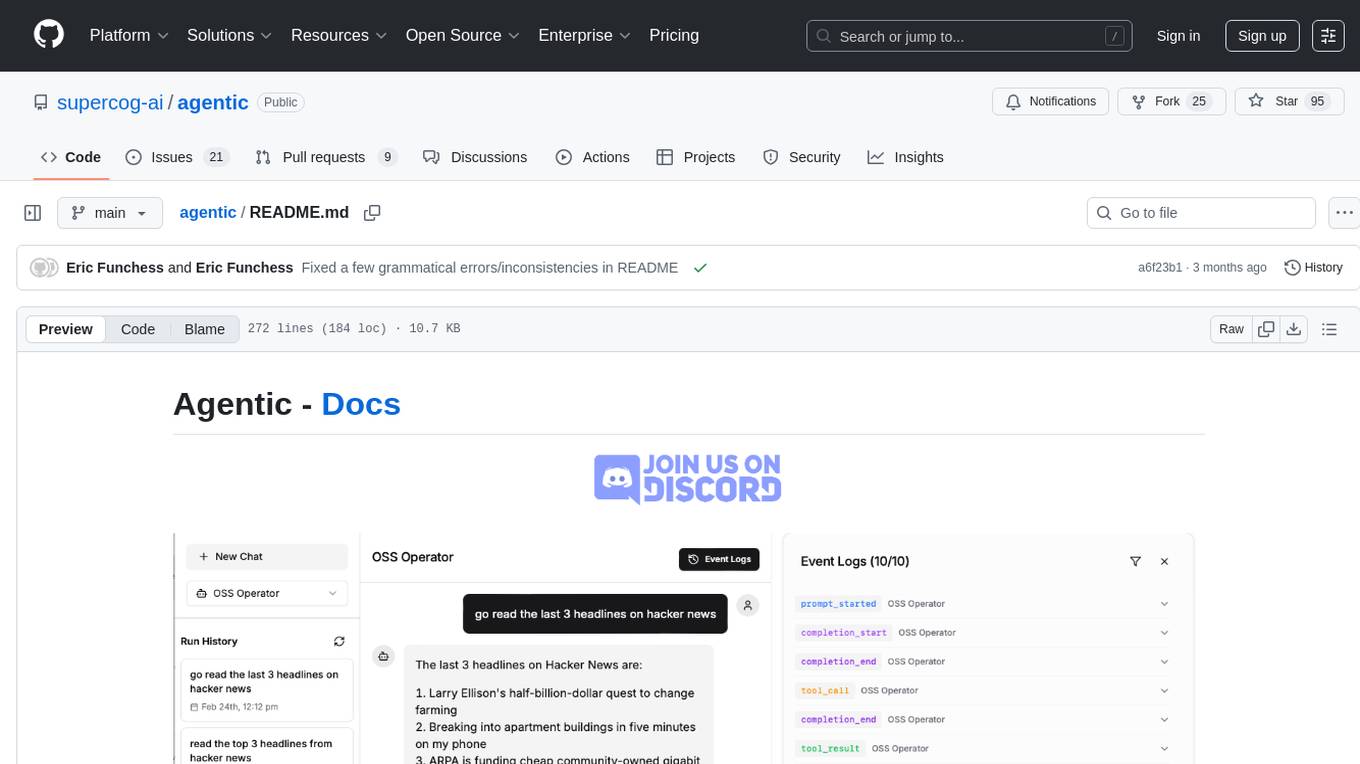
agentic
Agentic is a lightweight and flexible Python library for building multi-agent systems. It provides a simple and intuitive API for creating and managing agents, defining their behaviors, and simulating interactions in a multi-agent environment. With Agentic, users can easily design and implement complex agent-based models to study emergent behaviors, social dynamics, and decentralized decision-making processes. The library supports various agent architectures, communication protocols, and simulation scenarios, making it suitable for a wide range of research and educational applications in the fields of artificial intelligence, machine learning, social sciences, and robotics.
For similar tasks

verl
veRL is a flexible and efficient reinforcement learning training framework designed for large language models (LLMs). It allows easy extension of diverse RL algorithms, seamless integration with existing LLM infrastructures, and flexible device mapping. The framework achieves state-of-the-art throughput and efficient actor model resharding with 3D-HybridEngine. It supports popular HuggingFace models and is suitable for users working with PyTorch FSDP, Megatron-LM, and vLLM backends.
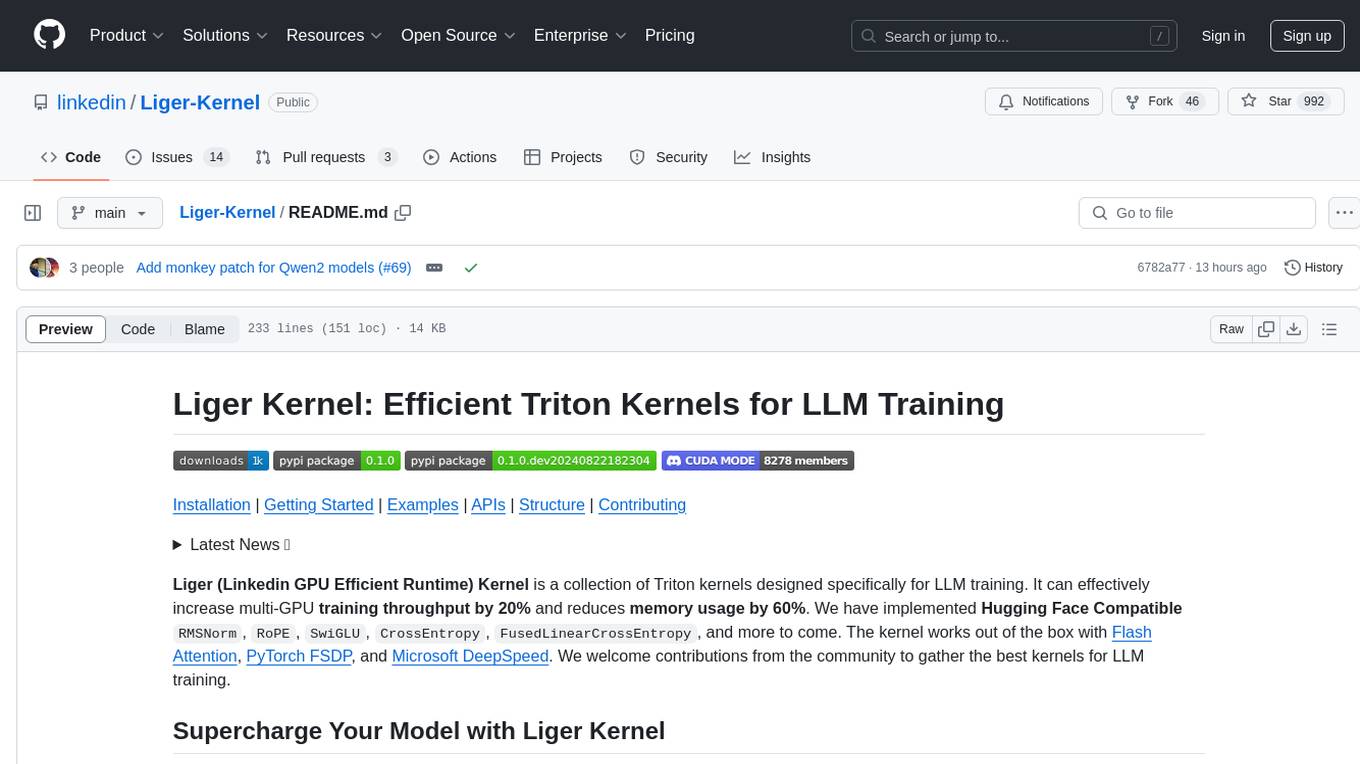
Liger-Kernel
Liger Kernel is a collection of Triton kernels designed for LLM training, increasing training throughput by 20% and reducing memory usage by 60%. It includes Hugging Face Compatible modules like RMSNorm, RoPE, SwiGLU, CrossEntropy, and FusedLinearCrossEntropy. The tool works with Flash Attention, PyTorch FSDP, and Microsoft DeepSpeed, aiming to enhance model efficiency and performance for researchers, ML practitioners, and curious novices.
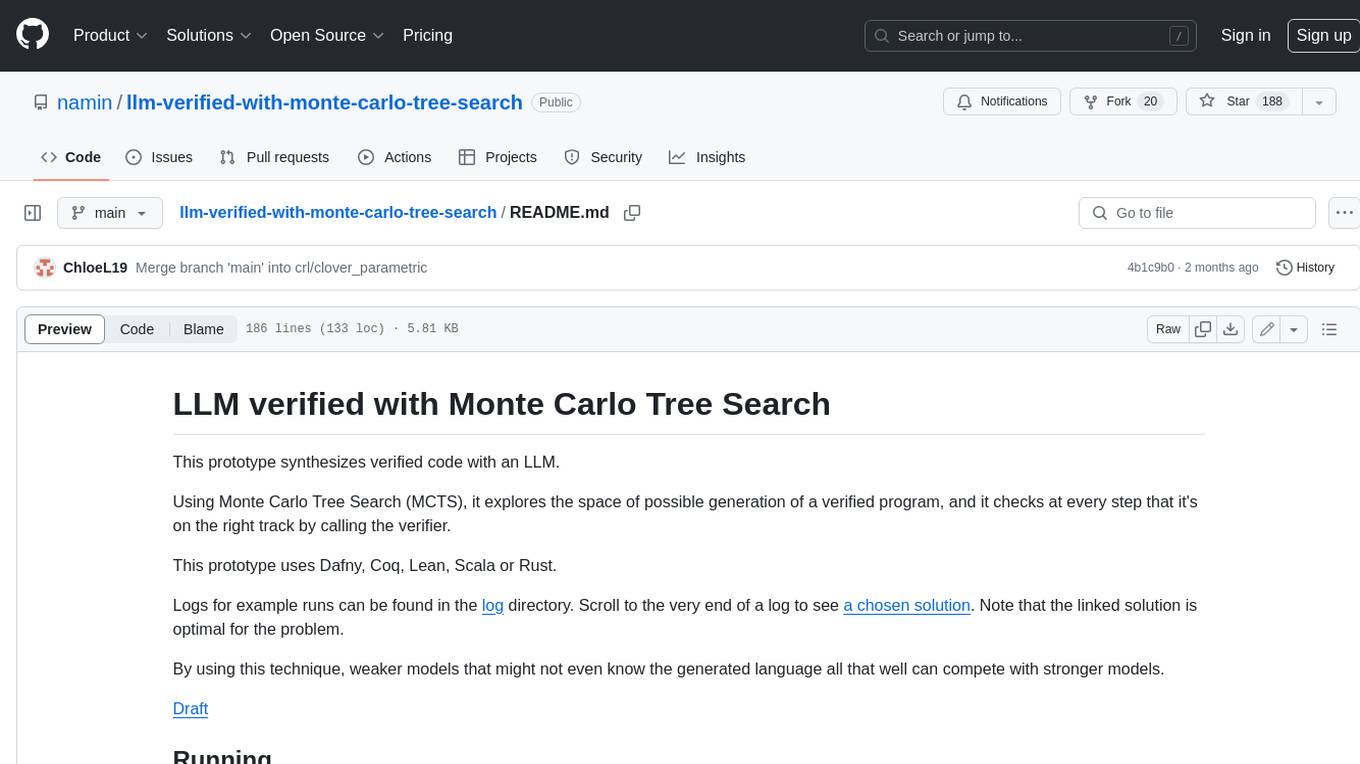
llm-verified-with-monte-carlo-tree-search
This prototype synthesizes verified code with an LLM using Monte Carlo Tree Search (MCTS). It explores the space of possible generation of a verified program and checks at every step that it's on the right track by calling the verifier. This prototype uses Dafny, Coq, Lean, Scala, or Rust. By using this technique, weaker models that might not even know the generated language all that well can compete with stronger models.

flashinfer
FlashInfer is a library for Language Languages Models that provides high-performance implementation of LLM GPU kernels such as FlashAttention, PageAttention and LoRA. FlashInfer focus on LLM serving and inference, and delivers state-the-art performance across diverse scenarios.
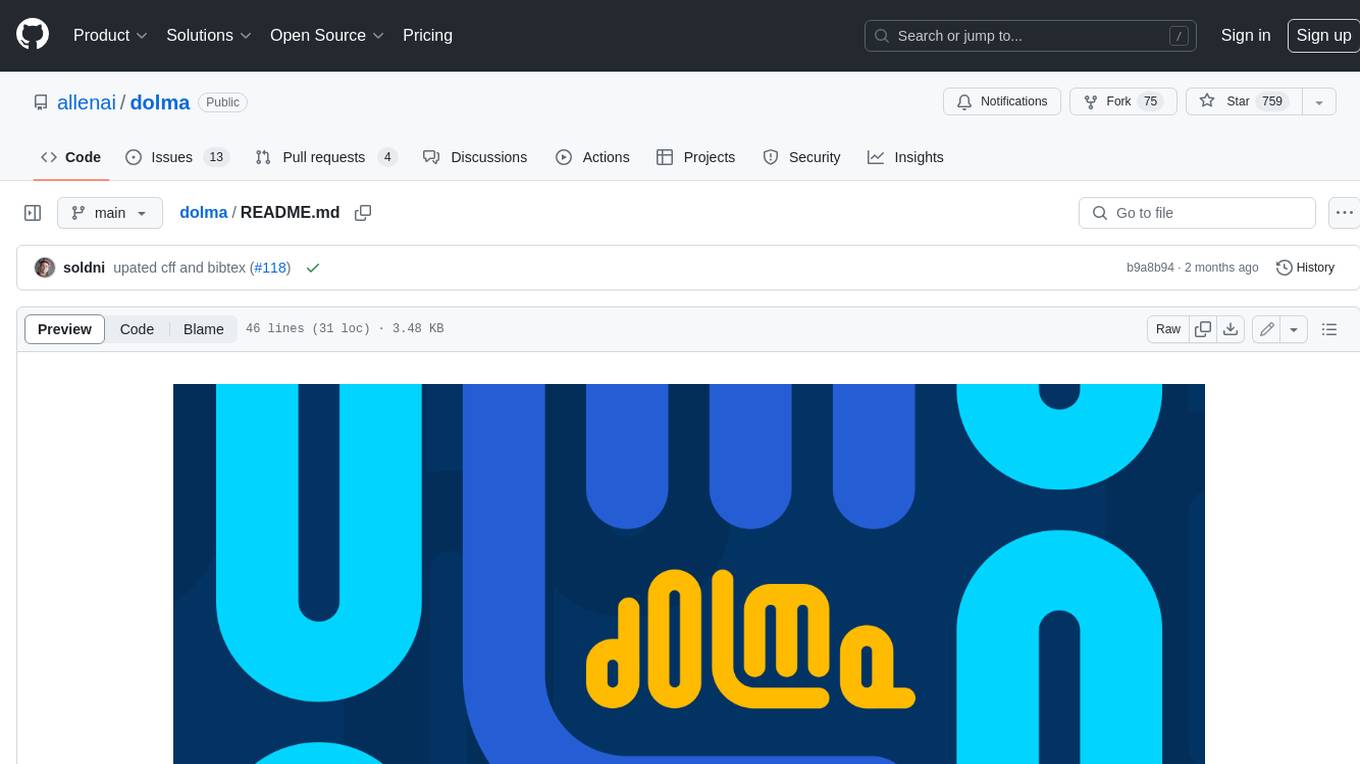
dolma
Dolma is a dataset and toolkit for curating large datasets for (pre)-training ML models. The dataset consists of 3 trillion tokens from a diverse mix of web content, academic publications, code, books, and encyclopedic materials. The toolkit provides high-performance, portable, and extensible tools for processing, tagging, and deduplicating documents. Key features of the toolkit include built-in taggers, fast deduplication, and cloud support.

web-llm
WebLLM is a modular and customizable javascript package that directly brings language model chats directly onto web browsers with hardware acceleration. Everything runs inside the browser with no server support and is accelerated with WebGPU. WebLLM is fully compatible with OpenAI API. That is, you can use the same OpenAI API on any open source models locally, with functionalities including json-mode, function-calling, streaming, etc. We can bring a lot of fun opportunities to build AI assistants for everyone and enable privacy while enjoying GPU acceleration.

nlp-llms-resources
The 'nlp-llms-resources' repository is a comprehensive resource list for Natural Language Processing (NLP) and Large Language Models (LLMs). It covers a wide range of topics including traditional NLP datasets, data acquisition, libraries for NLP, neural networks, sentiment analysis, optical character recognition, information extraction, semantics, topic modeling, multilingual NLP, domain-specific LLMs, vector databases, ethics, costing, books, courses, surveys, aggregators, newsletters, papers, conferences, and societies. The repository provides valuable information and resources for individuals interested in NLP and LLMs.
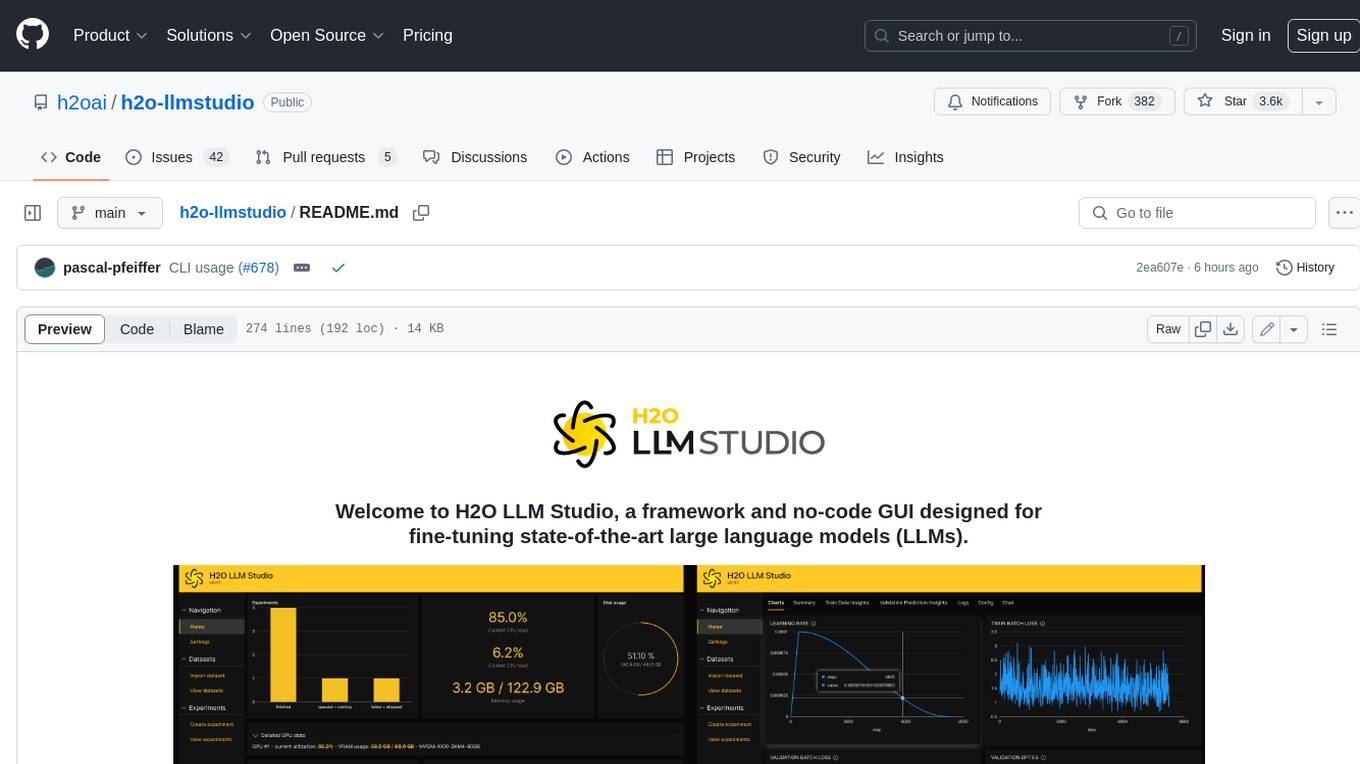
h2o-llmstudio
H2O LLM Studio is a framework and no-code GUI designed for fine-tuning state-of-the-art large language models (LLMs). With H2O LLM Studio, you can easily and effectively fine-tune LLMs without the need for any coding experience. The GUI is specially designed for large language models, and you can finetune any LLM using a large variety of hyperparameters. You can also use recent finetuning techniques such as Low-Rank Adaptation (LoRA) and 8-bit model training with a low memory footprint. Additionally, you can use Reinforcement Learning (RL) to finetune your model (experimental), use advanced evaluation metrics to judge generated answers by the model, track and compare your model performance visually, and easily export your model to the Hugging Face Hub and share it with the community.
For similar jobs

weave
Weave is a toolkit for developing Generative AI applications, built by Weights & Biases. With Weave, you can log and debug language model inputs, outputs, and traces; build rigorous, apples-to-apples evaluations for language model use cases; and organize all the information generated across the LLM workflow, from experimentation to evaluations to production. Weave aims to bring rigor, best-practices, and composability to the inherently experimental process of developing Generative AI software, without introducing cognitive overhead.

LLMStack
LLMStack is a no-code platform for building generative AI agents, workflows, and chatbots. It allows users to connect their own data, internal tools, and GPT-powered models without any coding experience. LLMStack can be deployed to the cloud or on-premise and can be accessed via HTTP API or triggered from Slack or Discord.

VisionCraft
The VisionCraft API is a free API for using over 100 different AI models. From images to sound.

kaito
Kaito is an operator that automates the AI/ML inference model deployment in a Kubernetes cluster. It manages large model files using container images, avoids tuning deployment parameters to fit GPU hardware by providing preset configurations, auto-provisions GPU nodes based on model requirements, and hosts large model images in the public Microsoft Container Registry (MCR) if the license allows. Using Kaito, the workflow of onboarding large AI inference models in Kubernetes is largely simplified.

PyRIT
PyRIT is an open access automation framework designed to empower security professionals and ML engineers to red team foundation models and their applications. It automates AI Red Teaming tasks to allow operators to focus on more complicated and time-consuming tasks and can also identify security harms such as misuse (e.g., malware generation, jailbreaking), and privacy harms (e.g., identity theft). The goal is to allow researchers to have a baseline of how well their model and entire inference pipeline is doing against different harm categories and to be able to compare that baseline to future iterations of their model. This allows them to have empirical data on how well their model is doing today, and detect any degradation of performance based on future improvements.

tabby
Tabby is a self-hosted AI coding assistant, offering an open-source and on-premises alternative to GitHub Copilot. It boasts several key features: * Self-contained, with no need for a DBMS or cloud service. * OpenAPI interface, easy to integrate with existing infrastructure (e.g Cloud IDE). * Supports consumer-grade GPUs.

spear
SPEAR (Simulator for Photorealistic Embodied AI Research) is a powerful tool for training embodied agents. It features 300 unique virtual indoor environments with 2,566 unique rooms and 17,234 unique objects that can be manipulated individually. Each environment is designed by a professional artist and features detailed geometry, photorealistic materials, and a unique floor plan and object layout. SPEAR is implemented as Unreal Engine assets and provides an OpenAI Gym interface for interacting with the environments via Python.

Magick
Magick is a groundbreaking visual AIDE (Artificial Intelligence Development Environment) for no-code data pipelines and multimodal agents. Magick can connect to other services and comes with nodes and templates well-suited for intelligent agents, chatbots, complex reasoning systems and realistic characters.














































